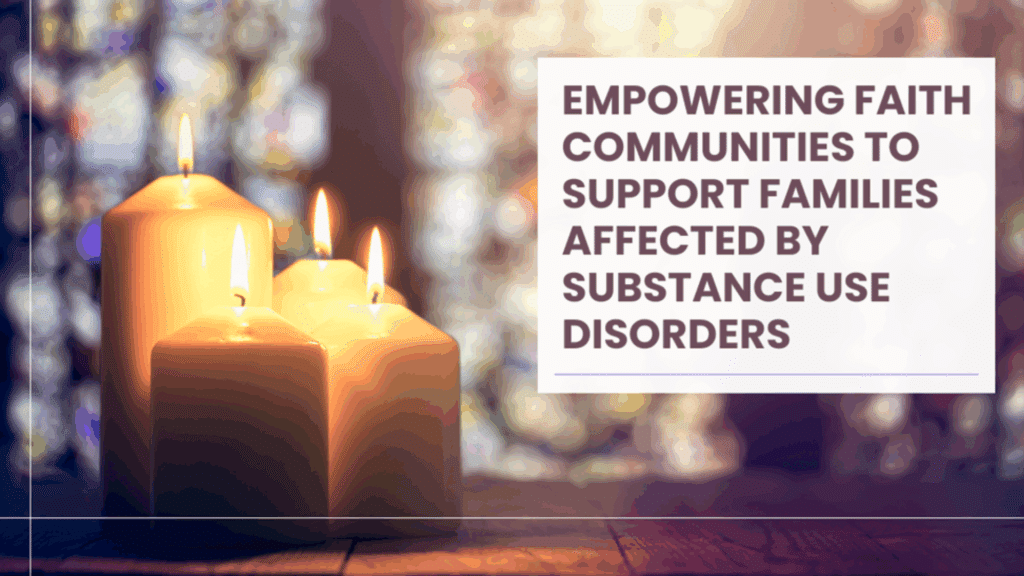Faith communities have long been a cornerstone of support for individuals and families during times of crisis. They offer spaces for reflection, connection, and healing. Today, these communities have an opportunity to become beacons of hope and support for families affected by substance use disorders (SUD), especially children who may silently bear the burden within their homes.
By leveraging educational resources like NACoA’s Children’s Program Kit and programs like Celebrating Families!, faith communities can create safe, informed, and inclusive environments. These efforts can help families and children thrive even in the face of significant challenges.
Hosting Community Forums for Safe Adults
Children growing up in families affected by SUDs in their homes often face emotional neglect, inconsistency, and secrecy. We often say children are the first hurt and the last helped! Faith communities can host educational forums for adults—teachers, coaches, and program volunteers—who interface with these children on a routine basis. These forums can draw from NACoA’s Children’s Program Kit to teach how to become a “Safe Adult” for these kids and teens.
Safe adults are trusted individuals who provide stability, understanding, and non-judgmental support, and who understand NACoA’s Seven Cs. Forums could cover:
• Recognizing the Signs of Distress Identifying when a child may need additional emotional support.
• Creating a Safe Environment Offering spaces where children feel secure, understood and free to play and relax.
• Effective Communication Using active listening and person-first language to foster trust for the child.
These forums can also inspire faith communities to examine their partnerships with organizations like Girl Scouts or youth sports leagues. Leaders can ensure that all programs hosted on their campuses incorporate Safe Adult training about children and families impacted by the chronic disease of addiction, to create broader networks of support for children in need.
Making Appropriate Referrals to Meet Essential Needs
Faith communities are uniquely positioned to act as bridges to critical resources for families grappling with the effects of SUD. Beyond offering spiritual and emotional guidance, they can::
• Connect Families to Resources Build relationships with local agencies and organizations that provide food, clothing, housing support, and other essentials.
• Offer Practical Assistance Coordinate drives or provide emergency funds to meet urgent family needs.
• Provide a Referral Network Ensure families know where to turn for professional counseling, substance use treatment, help with domestic violence, or legal assistance.
By recognizing the broad scope of needs that arise during these challenging times, faith communities can play a pivotal role in helping families maintain stability and regain their footing as the move toward a path of family recovery and healing.
Building a Culture of Compassion
By addressing SUD and its impact openly and compassionately, faith communities can reduce the stigma that prevents many families from seeking help. Practical steps include:
• Integrating Messages of Hope Using sermons and community newsletters to highlight stories of recovery and resilience.
• Offering Support Groups Providing a space for family members to connect and heal together.
• Collaborating with Professionals Partnering with local counselors, social workers, and SUD recovery organizations for educational workshops or resource fairs.
A Call to Action
The path forward requires faith communities to recognize the immense influence they have in shaping compassionate, informed responses to aiding those impacted by substance use disorders. By utilizing NACoA programs, faith leaders and congregants alike can transform their communities into sanctuaries of healing and growth for families and children affected by SUD.
Together, we can ensure that every child feels safe, every family feels supported, and every community becomes a place of hope.
